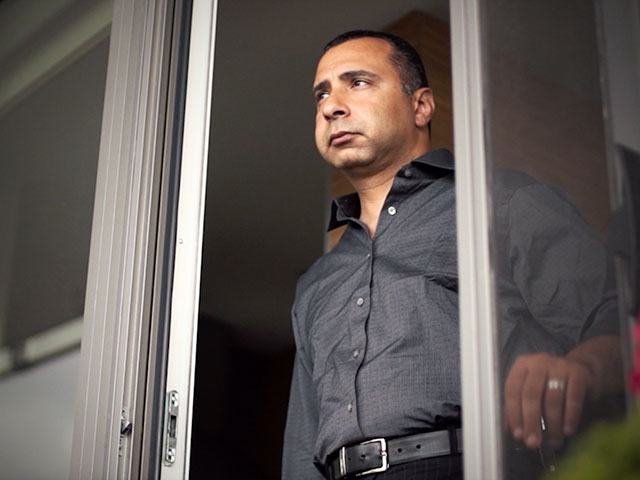Former Muslim Flees Persecution and Death Sentence
Majed remembers, “They just wanted to know who was cooperating with me. Who was working with me. Telling them was not an option, simple at that. I prefer to die.”
Majed Shafie grew up in a prominent Muslim family in Egypt. But even at a young age he struggled with Islamic beliefs and practices.
“There was a lot of violent, there was no place for forgiveness, there was no sacrifice. There was no woman rights, there was no minority rights.”
He was also troubled by the persecution of people in other religions, especially when he started making Christian friends in college.
Majed says, “I saw how peaceful they are. I saw how forgiving they are. I saw the principles and the values that they have. So I didn’t understand why you want to persecute people that they are that peaceful. And I needed to know what truth that this Christians have that I was not even allowed to hear.”
To get answers, Majed went to his Christian friend tamer, who in turn gave him a bible.
“And the more that I read, the more that I saw this amazing Lord that came on earth to die for us for our pain and sins and disease. And I saw all of His sacrifice, all His love that’s when I came to the conclusion, that’s when I came to the revelation that that’s the God that we should worship, that’s the God that I want to follow.”
Majed committed his life to Jesus Christ.
“This feeling of freedom, this feeling of liberation, there is nothing like when you know that you’re a child of God and you’re not a slave,” says Majed.
Shortly after, Majed and tamer formed an underground organization. They used caves to hide their church services and other activities.
“We build one Bible school, one medical clinic and we established, you know, a newspaper asking from the Egyptian government to give us our rights.”
The government responded by targeting the organization. One day, Egyptian soldiers discovered one of their caves and opened fire. Majed and tamer were there.
“One of the Egyptian officers ai-aimed at me. I didn’t see, Tamer did. So the officer shot and that’s when Tamer pushed me on the ground and he took a bullet and he died for me. And his last word for me was uh, ‘continue the fight, never give up.’”
Majed escaped, and continued his work.
3 months later, Egyptian police forced their way into his home and arrested him.
Majed remembers, “An officer came and he said, I need to know everything about you, who you are, who working with you. I told him I don't know anything, I don't know what you’re talking about, I don't know what organization and He told me you want to play tough we can play tough together. I told him tough is my middle name, you don’t need to worry about that. Next day they transfer me to Abu Zaabel Prison. For the locals, Abu Zaabel Prison is called hell on earth.”
Trying to get information, interrogators began systematically torturing Majed.
“You are underground, you are bleeding from everywhere. You’re beaten. There is no even a window in your cell. It’s underground. It’s absolute darkness. Absolute darkness. And the only thing that you can hear is the scream of the other people with you in other cells. I really thought I will - I will die there. Very few people came out of it alive, very few people.”
After two days, Majed feared he would betray his friends.
“Lying down in a pool of my own blood this was my prayer. I told Him, Lord, I want to thank you for your gift on the cross. I don’t regret believing in you. You died for me and I will live and I will die for you. However Lord, You made me out of flesh and blood, you know how weak I am. And my only request to you is to kill me before tomorrow morning,” says Majed.
The next day, his captors brought in dogs. Majed braced himself for the attack.
“There was absolute quiet and calm. So I removed my hand away from my face just little by little and that’s what I saw. By God all three dogs sitting around me. None of them moved one single step. Then another three dogs came. Sat in the same position with one little difference. The middle one took a step forward and he licked my face. I got the same message that the officers got. That maybe I’m alone but I’m not lonely. Somebody else here with me.”
His interrogator returned the following day. This time he made him an offer.
Majed says, “He said you tell me the name of your friends, I will release you. I will make you witness in the case, I will release you. He listed everything that any man will desire. I looked at him, I told him oh that’s, that’s a very good deal. I-I will take it. Go get me food and water and after that we’ll talk together. He said, whatever you like I will bring it to you. I told him shish kebab. He went, he bring an Egyptian food, I sit down, I ate. He told me now you tell me the name of your friends. I told him listen. We are a big group. Thousands of us. I will not remember all of us // But I can give you the name of our leader. He told me, okay, give me the name of your leader. I told him the name of our leader is Jesus Christ. If you can catch Him, catch Him.”
Retaliation was severe. Majed remembers enduring two more days of torture before losing consciousness, and later, waking up in a hospital.
It took him months to recover, only to face charges of treason in Egypt’s military court.
“And I will tell you what I told the judge in this day. If loving Christ. And if worshipping Him is a crime, I’m guilty as charged, your Honor. They give me the death penalty.”
Placed under house arrest, Majed waited for his execution. He was unaware that his organization had planned a rescue.
Majed remembers, “They came with arms, they was able to attack the Egyptian soldiers. They just grabbed me. And that’s when we put-put everything in the car, crossed to Alexandria. During this time, the Egyptian police put my pictures in every newspaper, in every magazine. Uh every TV shows. That’s when my friends told me you have to leave the country, you cannot stay any longer.”
to avoid capture, he made his way east to the port city of Taba. there he took a jet ski and navigated his way past border patrol boats to make it safely to Israel.
“And I surrendered to the Israeli police. And through Amnesty International and United Nation, I was accepted as a landed political refugee.”
Eventually Majed made his way to Canada. Where today, he leads one free world international, a human rights organization committed to helping persecuted people worldwide.
Majed says, “He’s my Lord and my Savior, my best friend. And He walks with me. Wherever I go, He just walks with me. Once you know that you found Him. There is nothing else matter after that. Nothing else.”





